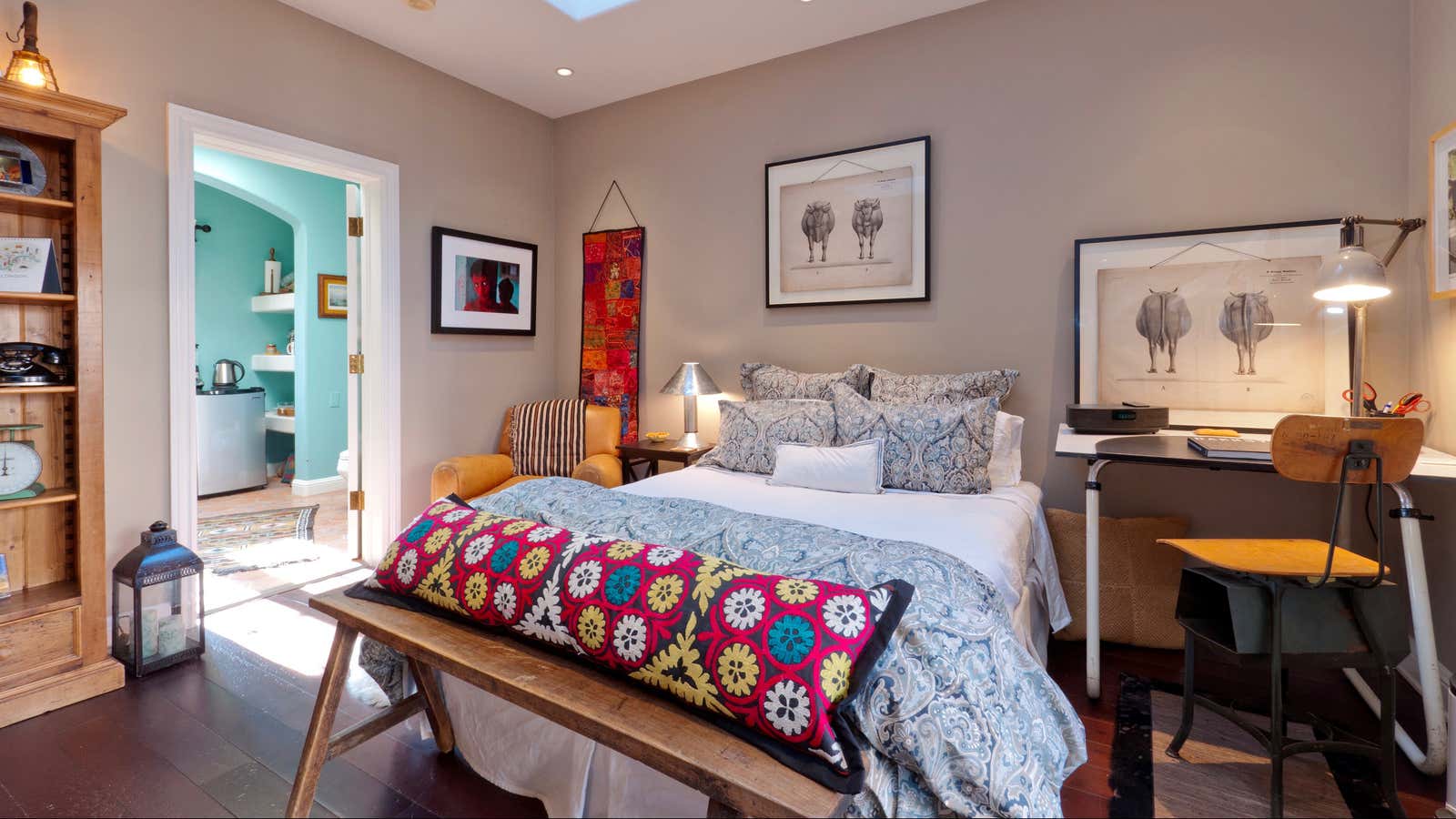Airbnb has traditionally downplayed its competition with the traditional hotel industry. That’s because Airbnb is usually positioned as a lodging alternative for leisure travelers (i.e., you and your friends on vacation in Europe), while core hotel consumers tend to be businesspeople (McKinsey consultants on a project in New Orleans). Even as Airbnb’s listings have topped 2 million, and its valuation $24 billion, hotel stalwarts have clung to the notion that on the most fundamental level, their businesses don’t compete.
But lately that notion is getting much tougher to maintain. On Friday (Jan. 22), Airbnb released new data on Airbnb for Business, the corporate travel arm it launched with Concur in July 2014 and expanded last summer. The bottom line: It’s getting ready to take a serious chunk out of the hotel industry’s most important business.
Since July 2015—when it revamped its business offerings—Airbnb says more than 50,000 employees of more than 5,000 companies have completed bookings. Those companies are also saving an average of 30% on travel accommodations and staying twice as long overall, Airbnb claims.
“Businesses have clearly been longing for a better way to manage their employees’ travel needs and business travelers seem eager for change from the traditional business travel accommodations,” Chip Conley, Airbnb’s head of global hospitality and strategy, said in a statement.
Business travelers are a coveted market for hotels. They tend to be more predictable than the typical leisure traveler (many companies, for example, belong to hotel loyalty programs) and also less price sensitive. US business travel spending is projected to reach $300 billion in 2017, according to the Global Business Travel Association.
Airbnb’s release closely follows one from travel and expense management firm Certify, which also noted steady growth in business travelers’ use of “sharing economy” services. Certify found that business spending on Airbnb grew 261% in the US and 249% overseas in 2015. It also dubbed Uber “the undisputed ground transportation leader” with 41% of the market in the fourth quarter, more than car rentals (39%) and taxis (20%).
Even with trends as they are, hotels still have some advantages. One common critique of Airbnb within the hotel industry is that the platform’s listings don’t adhere to the same safety regulations. On this point, even an Airbnb-sponsored study from the fall agrees: “Any traveler requiring a sense of service or other assurances licensed providers offer such as video cameras, fire detection systems, deadbolt locks, safes and more, may not be a good match for Airbnb,” that report, from consulting firm CWT Solutions Group, concluded.
For savings of 30% though, a critical mass of companies might not care.
